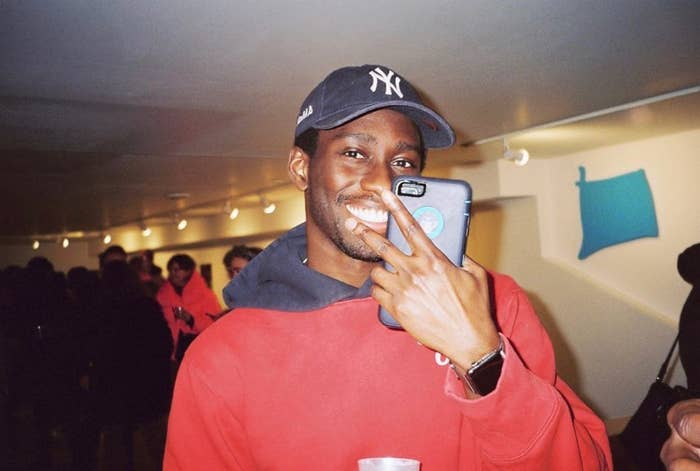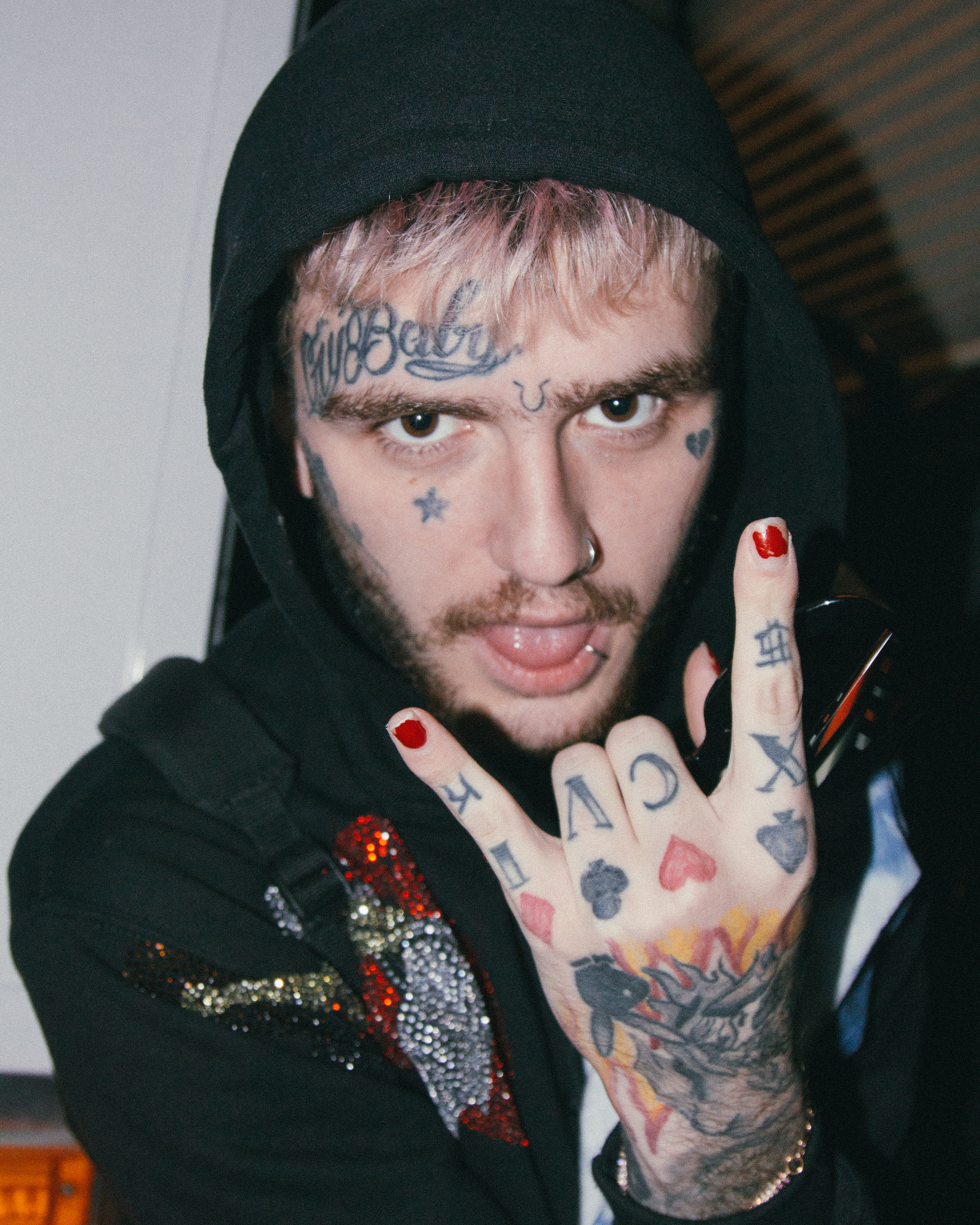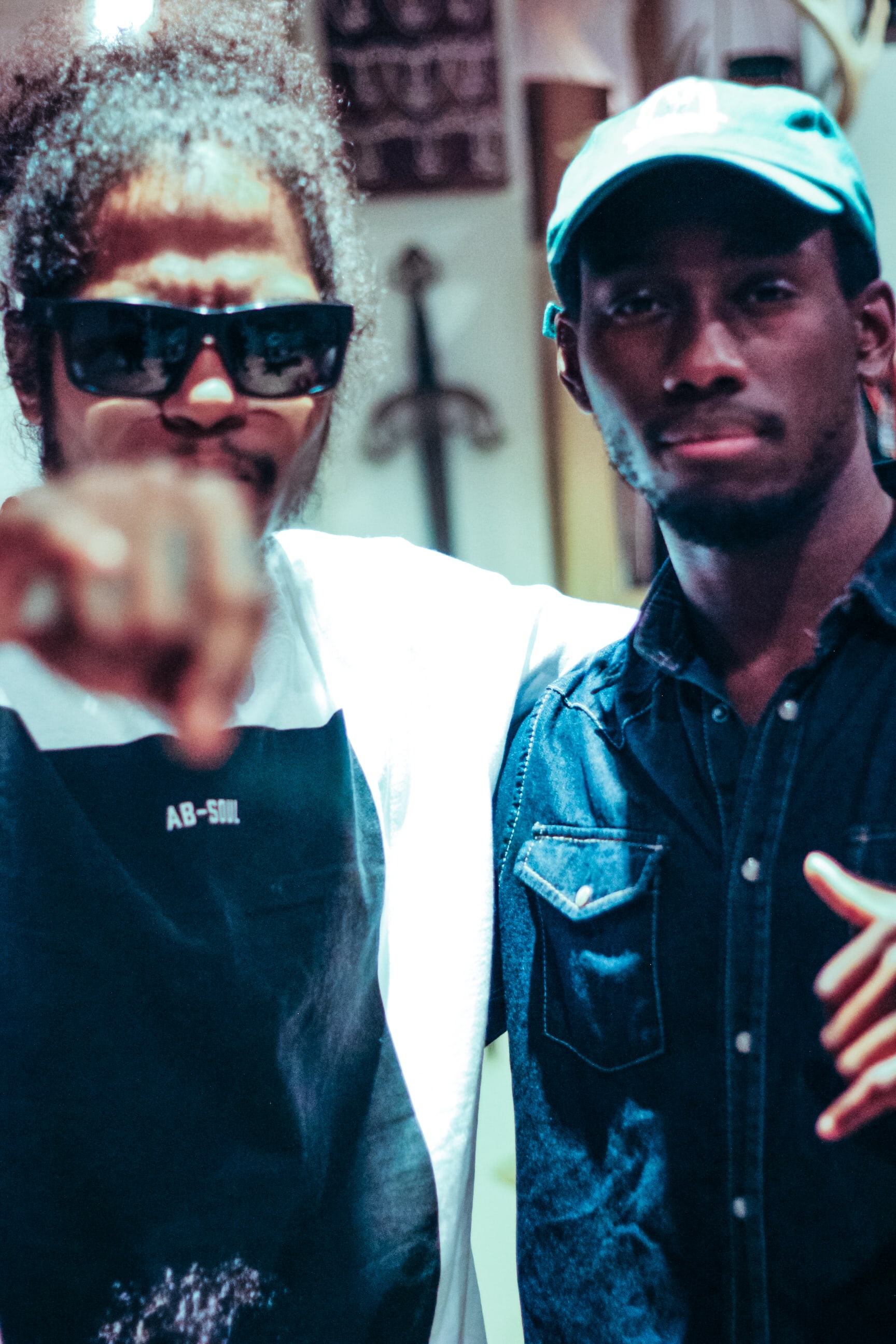
Freddie Wahter wants to open up.
He’s overcome racism and poverty to become the man he is today: a Toronto-based artist with global reach, working with musicians, fashion designers, and photographers to create the art he wants to make. But the world wasn’t always at Freddie’s grasp.
Growing up poor to two Ghanaian immigrants who met in Belgium, he faced a lot of pressure. His parents wanted him to pursue a career in things like engineering or medicine rather than have the capricious living of an artist.
But he’s overcome the odds. Today, he’s an in-demand artist who has partnered with FACE A-J and runs his own creative agency, Wahter Studio. The creative agency produces exhibitions for BIPOC artists internationally, helping them amplify their work on massive new levels.
He’s had the opportunity to work with musicians like Lil Peep and Smoke Dawg with his lifestyle brand Haute Savoy. Collaborative by nature, Wahter has also worked as cinematographer and director on films as well. A renaissance man, Wahter is helping foster underground creative talent worldwide.
Fresh off a trip to the UK, where he was exhibiting work, Wahter sat down with Complex to speak about the need for the cultural shift happening at the moment. The interview, edited for conciseness and clarity, is below.
Who is Freddie Wahter?
I’m a Toronto-based multidisciplinary artist working across arts, fashion, and culture. I’m the founder of Wahter Studio, and our goal is to create more space for Black and Indigenous People of Colour within the arts community in Canada and globally.
How did you first get your start in the worlds of art, film, and fashion?
My dad had a camera lying around. As an immigrant to [Canada], he needed some supplementary form of income. What he was doing was filming small projects within our local community. I would accompany him on some late nights when he was shooting and roll up the cables and do really basic stuff like that. As he got older, more and more of his equipment was just lying around and I just sort of picked it up.
As for fashion, my mom was actually a seamstress. I had the opportunity to sit with her and see the fabrics and Kente cloths she was using, which sparked my interest.

What influenced your current aesthetic?
I think for the main part, the ’90s technology is a direct influence from my father, as well as some of my favourite artists like Nam June Paik and Gretchen Bender—they are sort of the forefathers of video art.
I think there is something quite comforting about the overall aesthetic. What is produced is called ‘generation loss’ that produces that aesthetic. For me, it’s directly associated with nostalgia.

What is the significance of the kente cloth in Ghanaian culture?
It links back to royalty. It’s the highest form of garment that you could wear. In a celebration or a gathering, that’s what you would come dressed in. You would find the finest kente cloth. Thread count is an important thing: the design, the pattern, the colour. Usually, the spouses and the children all would have all the same [pattern]. It would be from the same fabric roll, and they’ll all match. But the way that it would be seamed together would be different. You mix the kente cloth with some lace. It’s just really significant to be able to wear that garment. It’s a sign of social status ultimately.

If you hadn’t pursued the arts, where did you think you would end up?
That’s a great question. Both of my parents are immigrants from Ghana. I grew up poor. For me, to work in arts and culture was such a thing that they were really reluctant for me to do. I think most immigrant parents are looking for their offspring or the second-generation to climb that social ladder and not to squander the opportunity that they worked so hard to provide you.
I went to school and did my masters in business. But I felt sort of hollow and empty inside. But I leaned upon what I learned from my parents because when they got here they had to do something else to supplement their income.
What more needs to be done for BIPOC representation?
There’s such a need to promote and create this cultural engagement and inclusion. I feel like there needs to be more provincial policies in [Ontario] aimed at directly placing ownership or the ability to have an art gallery. Not necessarily more grants because there are those in abundance. But a policy that would help enable ownership.

What was a time that you experienced racism in the industry?
It’s more often than I would like to admit. Being a person of colour, you try to find a way to manage what you consider racist. Like overtly racist or something that’s a little more covertly racist. You already regulate what you consider racist. Even though, yeah, these are moments of racism. There have been opportunities being Black, and in the arts, [where] I’ve been rejected at galleries upon showing up. We had a gallery that we were speaking to a bit over three months over email. Then we had a face-to-face meeting, and you could tell that the gallery owners were a little perturbed. They didn’t expect that I was Black. I didn’t hear from them for two to three days after that meeting. I checked with them again, and they were like, “Oh, unfortunately, at this time, we are not going to be able to offer you the gallery.” Which came out of nowhere. Beforehand they told me it was available and it was just a matter of sending over the contract. We had that day reserved until we went in to see what it was like.
Even attending some events and being in a VIP position or area and I walk in, I have trouble getting the credentials I need. Based off your appearance alone, they just surmise or make an assumption that ‘this guy is a hooligan’ or something, or increase the insurance policy. It actually happens so often when trying to work with a gallery. There are transgressions that happen quite often. Just three months ago, I experienced racism in the regular course of work.

